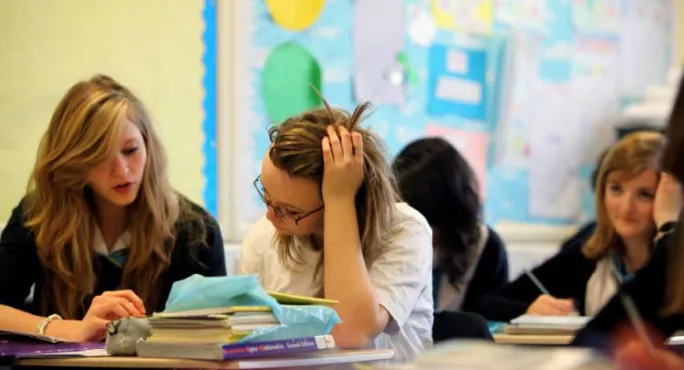A few weeks ago, I read Jon Severs’ marvellous interview with geneticist Robert Plomin with great interest.
Some of his ideas raise no eyebrows. It’s not new that we like to think that we’re making a difference in our pupil’s lives when the reality is that we’re making less of an impact than all our hard work might seem to justify. It’s not new that children inherit traits from their parents and that it’s a shame that they are all put through the same sort of educational sausage machine regardless (I guess he wasn’t talking about special schools).
Can somebody find me a magnifying glass? I seem to have mislaid the controversy.
But after that, I diverge. For instance, Plomin argues that polygenic scores could help us to create better interventions. “Research is being transformed in psychology and, eventually, it will happen in education. It will clean up attempts to assess the efficacy of an intervention,” he says in Severs’ article.
Why we need to talk about the role of genetics in education
What teachers need to know about the latest genetics research into GCSE performance
‘Genetics might predict intelligence, but every child still benefits from an academic education’
After years in “intervention”, I guess I approach the idea with a certain amount of cynicism. In school what you get rather than a “catch up” or some sort of “cure” is, despite your best intentions, years of segregation (corridor teaching, anyone?), the abdication of teaching to TAs and the slow erosion of and eventual exclusion from a broad and balanced curriculum for large numbers of children.
Children’s learning isn’t just down to DNA
As Severs says, it may be that, in Plomin’s words, we have got to a point where it is all “good enough”. The last time I looked, the educational journey to true equality was not over; against a backdrop of austerity and increasing demands, not only on the workforce but also the children, who must perform or lose their place, we have a long way to go to reach equality of opportunity.
Even if we do get there, let’s not forget that we live in a society that is constrained by the bonds of gender, ethnicity and class. Anyone who has worked in a school that serves a deprived area, teaching children with SEND, EAL and from low SES backgrounds, will know the feeling of being a teeny tiny Elastoplast attempting to cover a gaping wound. If we think that doing well in life or being “socially mobile” is down to exam results, we really need to take a good, long honest look at ourselves.
But for me, the biggest danger is not that, armed with genetic information, Plomin’s message becomes a justification for sorting children into streams, that it limits opportunity and becomes a self-fulfilling prophecy or that children expressing a difference will be further medicalised.
It isn’t even, in my view, that we will drift into a future where antenatal screening tests are widened without a proper consideration of ethics or of maternal consent. Indeed, many argue that this is already our reality.
It’s that when we teach, when we engage in the communal action of guiding the next generation of young people on their way, what we are really doing is dealing in a very precious commodity without which we may as well lay down the Powerpoint and go home: hope.
Nancy Gedge is Tes Send columnist, coordinator of the Ormerod Resource Base at the Marlborough School, Woodstock, and author of Inclusion for Primary Teachers




